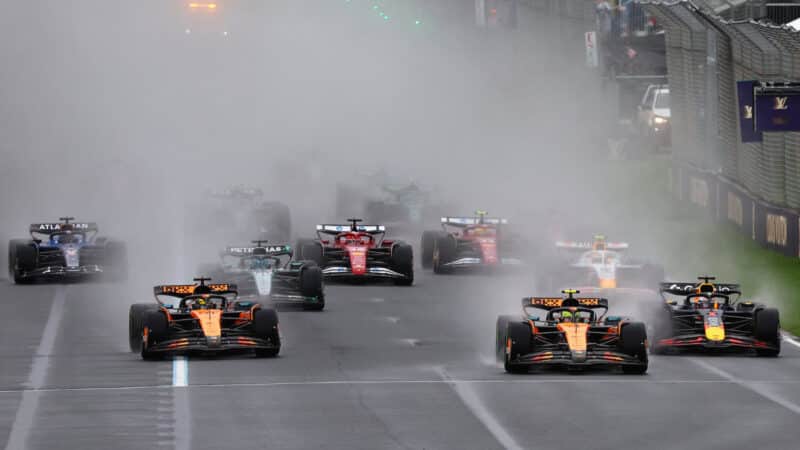Formula 1 bosses have discussed plans to tweak next year’s rules to allow engine manufacturers to catch up if they are far behind their rivals.
Fears about a big disparity in performance between engine suppliers has been a topic for some time as some manufactures are believed to be lagging behind rivals, a situation which could lead to having big gaps between cars in 2026.
Ferrari, Mercedes and Honda will be joined by Audi and Red Bull Powertrains as engine suppliers next year. Mercedes has been rumoured to be ahead of the competition for some time now.
On Thursday, the F1 Commission met for the second time this year at Geneva, a meeting chaired by FIA Single-Seater Director Nikolas Tombazis and Formula 1 CEO Stefano Domenicali.
The main topic agreed in the meeting was the possibility of making refinements to the energy management strategy for next year to prevent one manufacturer from having a big performance advantage.
Also discussed were measures to address financial issues faced by manufacturers with a low performance or significant reliability issues.
However, according to the BBC, there was no agreement on the proposal to reduce the amount of electrical powered allowed during races.
The 2026 engines will deliver approximately a 50/50 split between internal combustion and electrical power, a significant increase from the current 20%.
The FIA said in a statement that it will all be discussed in more detail “among the specialists in the appropriate advisory committees”.
Updates to 2025 rules
Also agreed in the meeting were minor refinements to the current regulations, including final tweaks required for the implementation of the mandatory two-stop strategy in the Monaco Grand Prix.


